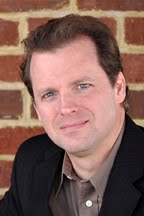PRE-CONFERENCE WORKSHOPS - THURSDAY, FEB. 16
8:30 AM - 12:30 PM Cost: $185 per person
(By advance registration only. Select one of six. Add $25 fee if you are not attending the conference.P)
 1. Teaching for More: Cultivating Thought, Wisdom, and Creativity in the Classroom
1. Teaching for More: Cultivating Thought, Wisdom, and Creativity in the Classroom
Research identifies strong correlations between "nonacademic" abilities-such as thinking, creativity, and "prescriptive knowledge" or "wisdom"-and success in and out of school. How can we cultivate these valuable capacities and fully equip students for success beyond the classroom? This workshop will explore how teaching can be designed to foster student growth in emotion, thought, wisdom, and creativity. Examples and tools to support application of the workshop's ideas will be provided.
Kevin D. Washburn, EdD, Executive Director, Clerestory Learning; Author, Architecture of Learning: Design Your Teaching for How the Brain Learns (2010)
 2. Whole Child-Mind Interventions for Successful Students: What Research Tells Us about the Impact of Emotion
2. Whole Child-Mind Interventions for Successful Students: What Research Tells Us about the Impact of Emotion
Neuroscience and social psychology research has spotlighted the impact of emotion on academic, social and emotional neural processing. This workshop will explore how to restore students' natural curiosity, hoow to reverse negativity and increase motivation and how the brain learns from mistakes, but mistake fear is the greatest threat to participation. Discover how can you reduce fear of mistakes and increase the risk-taking behavior needed for building strong and accurate long-term memories, how to help students develop their highest thinking and emotional control skills - the executive functions, and why now is the time to emphasize and practice neurological-based learning, SEL, and mindfulness in students.
Judy Willis, MD, EdM, Board-Certified Neurologist; Adjunct Faculty, University of California Santa Barbara, CA; author, Inspiring Middle School Minds (2009), How Your Child Learns Best (2008), Teaching the Brain to Read (2008), Research-Based Strategies to Ignite Student Learning (2006)
Marc A. Meyer. PhD, Director of Educational Programs and Initiative, MindUP Program, The Hawn Foundation; Former developer of integrated curriculum, The School at Columbia University; Educational Consultant; Author, The Search For Order (1994)
 3. Developing the Whole Child: The Role of Early Brain Plasticity
3. Developing the Whole Child: The Role of Early Brain Plasticity
The human brain goes through an amazing growth period in the first five years of life. This session will focus on genetic and environmental factors during these years that strongly influence and shape not only cognitive development but emotional and social development as well.
Patricia Wolfe, EdD, Adjunct Professor, North Idaho College; Former teacher of K-12 students; Educational Consultant; President, Mind Matters, Inc.; Author, Brain Matters: Translating Research into Classroom Practice (2010, 2nd Edition)
 4. Growing up with ADHD: Risk, Self-Regulation and Resilience
4. Growing up with ADHD: Risk, Self-Regulation and Resilience
Dr. Goldstein will provide an overview of current research on ADHD in children and teens. He will discuss the risk and the role of genes, self-regulation and resilience as protective factors that appear to best predict classroom functioning and lifetime outcomes for children who struggle with these challenges. Dr. Dilller will offer the findings of the "Remembering Ritalin" project: ten children who were featured in "Running on Ritalin", now young adults ages 24-34, were located and extensively interviewed thirteen years later on their memories of living with ADHD, their treatment and their current status. The video presentation features four of the ten young adults sharing their reflections directly to the audience. Theories are offered to account for the generally more favorable outcomes of the children of Remembering Ritalin compared to those who have been followed into young adulthood in more formal studies. The long term findings of Remembering Ritalin should impact practical and pragmatic decisions about current ADHD/ADD evaluations and treatment..
Sam Goldstein, PhD, Assistant Clinical Instructor, Department of Psychiatry, School of Medicine, University of Utah; School Psychologist, Editor-in-Chief, Journal of Attention Disorders; Co-Editor, Learning and Attention Disorders in Adolescence and Adulthood: Assessment and Treatment (2010)
Lawrence H. Diller, MD, Assistant Clinical Professor, Pediatrics, University of California, San Francisco; Behavioral/Developmental Pediatrician and Family Therapist; Author, Remembering Ritalin: A Doctor and Generation Rx Reflect on Life and Psychiatric Drugs (2011) and The Last Normal Child: Essays on the Intersection of Kids, Culture, and Psychiatric Drugs (Childhood in America) (2006)
 5. Science-based Strategies for Teaching and Parenting Teens and Key Principles That Work
5. Science-based Strategies for Teaching and Parenting Teens and Key Principles That Work
The first part of this workshop will focus on strategies that parents and teachers can use to avoid power struggles and help teens develop social, academic and emotional competence. Special attention will be given to stress reduction, school achievement and optimal youth development. The second part will examines key principles of how the brain learns that can be effectively used in the classroom. Participants will experience a series of these principles and be able to discuss and share their own observations. This is a highly practical workshop based upon research from the book, Teaching and the Adolescent Brain, and strategies that has been successfully used in real teaching situations for years.
Laura Kastner, PhD, Clinical Associate Professor, Psychiatry and Behavioral Sciences, University of Washington; author, Getting to Calm: Cool-headed Strategies for Parenting Tweens and Teens (2009)
Jeb Schenck, PhD, Adjunct Professor, University of Wyoming; Science Teacher of the Year, Tandy Scholar Teacher; Genentech Access Excellence Fellow; Einstein Finalist, and Presidential Awardee; Author, Teaching and the Adolescent Brain: An Educator's Guide (2011)
 6. Smarter Learning and Leading with Habits of Mind
6. Smarter Learning and Leading with Habits of Mind
Habits of Mind are behavioral dispositions that help students and teachers successfully navigate the various challenges and problems they encounter in the classroom and in everyday life. These sixteen habits dovetail with the up-to-date concepts and research of what constitutes intelligence. These habits support teachers in creating "thought-full" classroom environments. Participants will develop an understanding of the sixteen Habits of Mind and make connections between the Habits of Mind and self- directed learning. The Habits of Mind serve as an internal compass to guide students and teachers in thriving in a complex world.
Michele W. De Bellis, EdD, Training Associate, Center for Cognitive Coaching, the Center for Adaptive Schools and The Institute for Habits of Mind; Former Director of K-12 Math and Science Partnership, Leadership Development and Literacy, El Paso Collaborative for Academic Excellence; Trainer, Cognitive Coaching Project, College of Education, The University of Austin, Texas


 1. Teaching for More: Cultivating Thought, Wisdom, and Creativity in the Classroom
1. Teaching for More: Cultivating Thought, Wisdom, and Creativity in the Classroom
 3. Developing the Whole Child: The Role of Early Brain Plasticity
3. Developing the Whole Child: The Role of Early Brain Plasticity 4. Growing up with ADHD: Risk, Self-Regulation and Resilience
4. Growing up with ADHD: Risk, Self-Regulation and Resilience 5. Science-based Strategies for Teaching and Parenting Teens and Key Principles That Work
5. Science-based Strategies for Teaching and Parenting Teens and Key Principles That Work 6. Smarter Learning and Leading with Habits of Mind
6. Smarter Learning and Leading with Habits of Mind